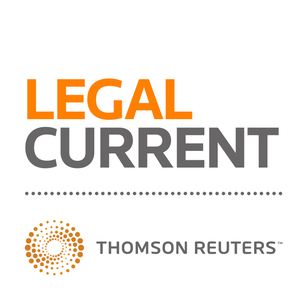
Legal Current
Thomson Reuters Legal
- 12 minutes 24 secondsABA Private Target M&A Deal Points Study & Practical Law Partnership
he ABA’s Business Law Section M&A Committee’s flagship Private Target M&A Deal Points Study is considered the industry’s gold standard reference for deal points in private acquisition agreements. Through Practical Law's new partnership with the ABA, select Practical Law forms now contain integrated slides from the study as well as continuously updated Practical Law What's Market Analytics charts and What's Market's trends information.
This podcast discusses this new partnership, including a sneak peek at the timing of and several new data points to be covered in the soon to be released 2023 version of the study, among Barbara J. Oikle, the Senior Managing Editor of National Corporate and M&A Content at Practical Law and the two Co-Chairs of the study:
- Jessica C. Pearlman, a Partner at K&L Gates, LLP, and Vice Chair of the ABA’s Business Law Section’s M&A Committee and former Chair of the ABA’s Business Law Section’s M&A Committee's Market Trends Subcommittee, and
- Tatjana Paterno, a Member at Bass, Berry, & Sims PLC, and Vice Chair of the ABA's Business Law Section's M&A Committee's Market Trends Subcommittee.
To view a toolkit with links to Practical Law forms that have been updated with this integrated information, see Private M&A Forms with Integrated Market Trends Information Toolkit.
8 November 2023, 9:56 pm - 13 minutes 37 secondsEmployers & Employees Dealing With Long COVID
The CDC estimates that about 7.5% of the U.S. population may be dealing with long COVID or what is also termed long-haul COVID, post-acute COVID-19, long-term effects of COVID or chronic COVID.
Because long COVID is not as well understood as COVID-19 in terms of causes, symptoms and treatment, it can be complicated for employers to deal with. Lindsay Ditlow Of McDermott Will & Emery discusses what employers and employees should consider if dealing with Long COVID.
31 March 2023, 4:10 pm - 18 minutes 12 secondsRise of Investor-Backed Law Firms
Various states are exploring new models on who can practice law, new ownership models of law firms, and other paradigm shifts. Arizona changed its alternative business structure to non-lawyer ownership and investment in law firms. Scout Law is the first such entities to take advantage of the change. Steve Germann discusses why he created the new firm, and his expectations for similar firms.
22 February 2023, 7:17 pm - 17 minutes 26 secondsHow Law Firms Are Changing Their Support Staffing
A lot of attention has been paid lately to lateral hiring and associate compensation, but changes are also taking place in law firm staffing. Thomson Reuters Institute recently completed its annual analysis on law firm staffing ratios. Today, we’ll talk about what the new trends are with Isaac Brooks, senior industry data analyst and Natalie Runyon, director, ESG content and advisory services.
13 September 2022, 10:46 pm - 20 minutes 57 secondsEverything You to Know (Almost) About the Metaverse6 July 2022, 2:46 pm
- 17 minutes 1 secondWhat to Know When Starting an NFT Marketplace
Non-fungible tokens (NFTs) are the hot craze. While the initial coin offering ("ICO") craze of 2017-2018 fizzled out in the face of government enforcement actions, a resurgence in the global market for bitcoin and the new category of NFTs is fueling a new boom in digital assets as mainstream interest increases. Recently, Christie's became the very first major auction house to offer a fully digital work. Internet celebrity Logan Paul made over $5 million selling NFTs. Musician Post Malone invited fans to play beer pong with him if they bought an NFT.
Thomson Reuters recently hosted a two-day conference discussing risks and rewards for digital assets such as cryptocurrencies and NFTs.
Louis Lehot of Foley & Lardner discusses some common legal considerations when launching an NFT marketplace, including documentation you need, intellectual property and other legal considerations, as well as overarching legal implications of this new technology.
28 April 2022, 12:00 pm - 14 minutes 12 secondsDigital Currencies - Risk, Reward & Opportunity
Cryptocurrencies such as bitcoin, Ethereum and dogecoin saw a record $9.3 billion inflow in 2021. Governments and regulatory bodies are racing to keep up with explosion of cryptocurrencies, associated marketplaces and exchanges, and other digital assets such as NFTs. Thomson Reuters is hosting a two-day exploration of risk and reward for the global crypto community. Will anticipated oversight bolster or derail palpable momentum heading into 2023?
The conference, which will be conducted both in-person and online, features expert from across corporate, legal, tax, and regulatory realms who will offer comprehensive guidance for both casual observers and industry veterans alike. The event will take place April 14 & 15, and registration is free at: https://www.thomsonreuters.com/en-us/posts/events/manifest-destiny-risk-opportunity-reward-around-digital-currencies/
Co-chair of the conference, Bradford Newmann, partner at Baker McKenzie, and Chair of the AI & Blockchain Subcommittee of the ABA, discusses some of the topics that the conference will address.
7 April 2022, 1:00 pm - 18 minutes 40 secondsThe Impact of COVID on Sports
Get your brackets out! For the first time in three years, March Madness, as we’re accustomed to seeing it, is back. NCAA, NFL, NBA, MLB, NHL and the Olympics all navigated their way through the pandemic through a combination of delays, bubbles, cancelled games, and various COVID protocols.
Will any of this have lasting effects on players’ rights, collective bargaining agreements, etc.? Glen Rothstein, a partner in the Litigation practice group at Greenspoon Marder, primarily in entertainment, sports & interactive gaming, weighs in.
18 March 2022, 4:37 pm - 22 minutes 41 secondsOne Year After the George Floyd Killing - Community Rebuilding & Police Reform
The events last summer following the killing of George Floyd by Minneapolis police shook the city of Minneapolis to its core. Days of riots and unrest destroyed scores of business, particularly in the Lake Street area, where rebuilding is still taking place. Many parts of the community have pulled together to assist with the rebuilding as well as tackle the broader community issues that also in the wake of the George Floyd killing even more than one year later.
Sharon Sayles-Belton, vice president of alliances and partnerships at Thomson Reuters and former mayor of Minneapolis, and Rick Anderson, senior principal at Fish & Richardson discuss where things stand – more than one year later – in that most affected area of Minneapolis that was really Ground Zero for the events of last year, as well as in the broader community, and on the broader issues of racism and policing that are still being grappled with in Minneapolis and beyond.
1 October 2021, 12:27 pm - 34 minutes 29 secondsAdapting International Arbitration Through Remote Technology
The COVID-19 pandemic has not only affected in-person court hearings, but has similarly affected the arbitration world as well. In-person arbitration hearings are now difficult to hold, owing to travel restrictions and the difficulty in safely conducting face-to-face hearings.
The arbitration world is rapidly adapting to remote arbitration hearings. The Arbitration Institute of the Stockholm Chamber of Commerce, one of the leading institutions for international arbitration, is leading the charge to adapt arbitration processes and technologies to remote hearings.
Lise Alm, head of business development, discusses how her organization is helping to transform arbitration heariings not only for the current situation but to prepare for the future as well. Sebastiaan Bos, director of solutions for Europe, the Middle East and Asia at Thomson Reuters, joins the discussion to discuss how advanced workflow technologies such as HighQ can help enable this transformation.
4 January 2021, 9:35 pm - 12 minutes 47 secondsGlobal Lawyer Hackathon Addresses Climate Change
Global Lawyer Hackathon Addresses Climate Change
Hundreds of lawyers around the world are participating in a unique global “hackathon” to create new contracts and model laws to help fight climate change. The Chancery Lane Project aims to create legal frameworks to enable and encourage businesses and communities to have a positive impact on the environment, and envisions a world where every contract and law enables solutions to climate change.
Becky Clissmann, environmental law editor at Practical Law, discusses the project and how it engages legal professionals to empower businesses and communities to help meet goals of net zero emissions.
3 November 2020, 11:00 am - More Episodes? Get the App
Your feedback is valuable to us. Should you encounter any bugs, glitches, lack of functionality or other problems, please email us on [email protected] or join Moon.FM Telegram Group where you can talk directly to the dev team who are happy to answer any queries.
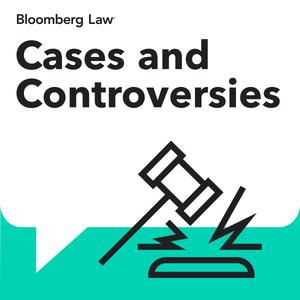 Cases and Controversies
Cases and Controversies
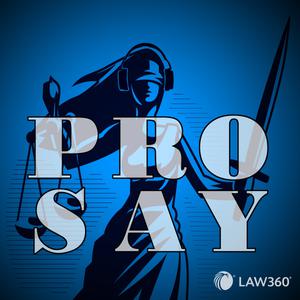 Law360's Pro Say - News & Analysis on Law and the Legal Industry
Law360's Pro Say - News & Analysis on Law and the Legal Industry
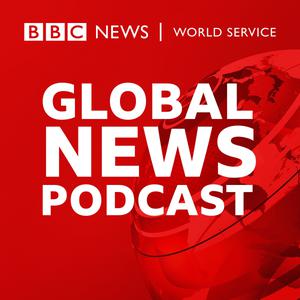 Global News Podcast
Global News Podcast
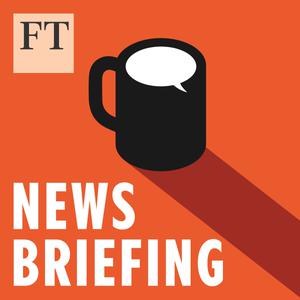 FT News Briefing
FT News Briefing
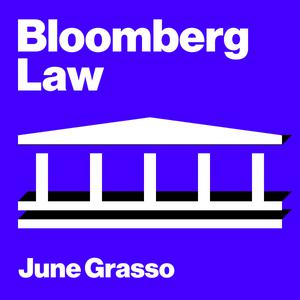 Bloomberg Law
Bloomberg Law
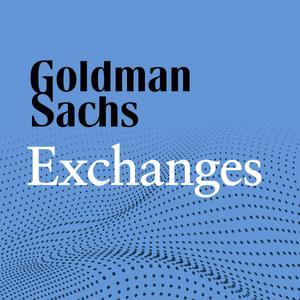 Goldman Sachs Exchanges
Goldman Sachs Exchanges